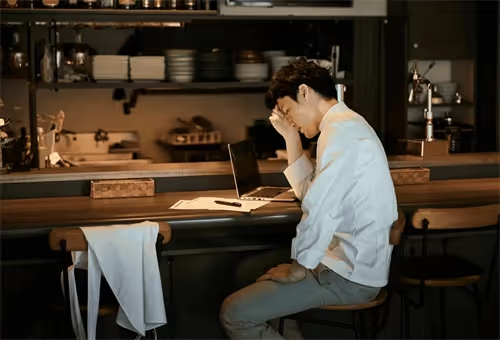How Professional Conduct Can Be Misunderstood
In Australia’s legal system, where consent and bodily autonomy are strictly protected, even the slightest misunderstanding during a professional service can have life-altering consequences. This case demonstrates how an experienced massage therapist, wrongfully accused of sexual assault, was cleared of all charges thanks to the dedicated defence work by Brightstone Defence.
The Incident: Professional Services Misinterpreted as Assault
In April 2021, Mr Chen, a 62-year-old, seasoned massage therapist, provided a treatment to a female client, Susan, who complained of lower back and tailbone pain. Mr Chen conducted a targeted massage, which included working on the inner thighs—a common area used to relieve such pain.
Throughout the session, Mr Chen checked with Susan multiple times about her comfort level and the pressure applied. She consistently affirmed that the massage was providing relief. However, after the session ended, Susan expressed dissatisfaction to the salon’s manager, claiming that the proximity of the massage to her intimate areas made her uncomfortable. Susan and her husband, Adam, reported the incident to the police, accusing Mr Chen of sexual assault.
Susan's allegations were serious—she claimed Mr Chen had touched her private parts, including her labia and clitoris, without her consent. If these claims were proven true under Australian law, Mr Chen could face severe consequences. The police acted swiftly, arresting Mr Chen and charging him with three counts of non-consensual sexual touching and one count of common assault.
Understanding the Legal Framework: Sexual Assault Charges and Legal Requirements
The charges brought against Mr Chen fell under section 61KC of the Crimes Act 1900 (NSW), which outlines the offence of sexual assault through non-consensual touching. To secure a conviction, the prosecution must prove the following elements beyond a reasonable doubt:
- The accused intentionally touched the complainant;
- The touching was sexual in nature;
- The complainant did not consent; and
- The accused was aware that the complainant did not consent.
Brightstone Defence recognised that disproving the sexual nature of the touch was the key to Mr Chen’s defence. The defence team focused on whether Mr Chen’s actions during the massage were consistent with professional, therapeutic conduct.
Defence Strategy: Proving Therapeutic Intent and Normal Professional Conduct
Upon reviewing the case, Alex Cao, Partner at Brightstone Defence, understood that the critical point was to challenge the claim that Mr Chen’s touch was sexual. The defence team worked hard to establish that the actions were part of a legitimate therapeutic process, not intended to fulfil any sexual or inappropriate desire.
The defence’s argument hinged on:
- The fact that the touch in question was performed to relieve pain, particularly in the inner thigh muscles, a common area targeted in therapeutic massages.
- Mr Chen’s repeated checks with Susan regarding her comfort, all of which were affirmed as satisfactory.
- The absence of any overtly sexual behaviour, comments, or gestures from Mr Chen during the treatment.
The defence also called upon expert witnesses who testified that the areas of the body that had been touched were relevant to relieving Susan’s reported pain and that such touch was entirely professional. These experts reinforced the idea that certain areas of the body, though considered intimate, could be touched during legitimate treatment aimed at alleviating physical discomfort.
Courtroom Challenges: Cross-Examination and Discrediting the Prosecution’s Version
During the trial, the defence scrutinised the inconsistencies in Susan’s version of events. They noted that although Susan claimed to have felt discomfort during the massage, she did not verbally object or request that the treatment stop. The defence’s strategy was to prove that any discomfort experienced by Susan was due to the therapeutic nature of the massage itself, not any inappropriate conduct.
In cross-examination, the defence team asked Susan directly whether there were any suggestive, flirtatious, or inappropriate comments or behaviour from Mr Chen during the session. Susan denied this, reinforcing the argument that no sexual intent was present.
The defence also pointed out that Susan had never explicitly rejected the therapist’s touch nor communicated discomfort at the time. This lack of objection, along with expert testimony, raised significant doubts about the veracity of the allegations.
The Outcome: Acquittal Based on Lack of Evidence of Sexual Intent
Despite the initial apparent strength of the accusations, the court concluded that the prosecution had failed to meet its burden of proof. The judge acknowledged Susan’s feelings of discomfort but emphasised that feeling uncomfortable does not equate to sexual assault under the law.
The judge remarked:
"While the complainant may feel that her privacy was violated, the law requires more than a mere perception of discomfort. There is no sufficient evidence to support the claim that the touching was sexual in nature."
Ultimately, the defence’s argument that Mr Chen’s actions were entirely in line with professional massage practices was accepted. The charges against Mr Chen were dismissed, and he was acquitted of all allegations.
Legal Implications: The Role of Reasonable Doubt in Criminal Defence
This case highlights the importance of reasonable doubt in criminal law. Even when the alleged victim’s testimony is credible, the prosecution must still prove its case beyond all reasonable doubt. Brightstone Defence’s thorough approach to challenging the sexual nature of the touch and providing expert testimony was pivotal in protecting Mr Chen’s rights.
The outcome serves as a reminder that allegations of sexual assault in professional settings require careful scrutiny, particularly when the actions in question fall within accepted professional practices.
Frequently Asked Questions (FAQ)
- What is considered "sexual touching" under Australian law?
Sexual touching refers to physical contact with a person’s body for sexual arousal or gratification. It must be non-consensual and intentional.
- How can professionals protect themselves from sexual assault allegations?
Clear communication, informed consent, and maintaining professional boundaries are key. Detailed records and third-party involvement when appropriate can also help protect professionals.
- Can a client’s discomfort during a treatment lead to criminal charges?
Discomfort alone does not necessarily equate to criminal behaviour. The context and intent behind the touch are crucial in determining whether a criminal offence occurred.
- What should I do if I am wrongfully accused of sexual assault in a professional setting?
It is important to seek legal advice immediately. A defence lawyer can help ensure your side of the story is heard, and that any accusations are properly challenged in court.
Protecting Your Rights in Complex Allegations
Brightstone Defence is committed to defending clients who are wrongfully accused of sexual misconduct, especially when misunderstandings or misinterpretations of professional actions lead to legal consequences. If you find yourself facing similar charges, it is essential to work with a defence team that understands the complexities of these cases and can provide a strong, evidence-based defence.
Disclaimer: This content is based on real cases and news reports and is intended for general informational purposes only. It has been prepared by the criminal lawyer team and reviewed by Partner lawyer Alex Cao. It is not legal advice, and you should consult a qualified lawyer regarding your specific circumstances.





